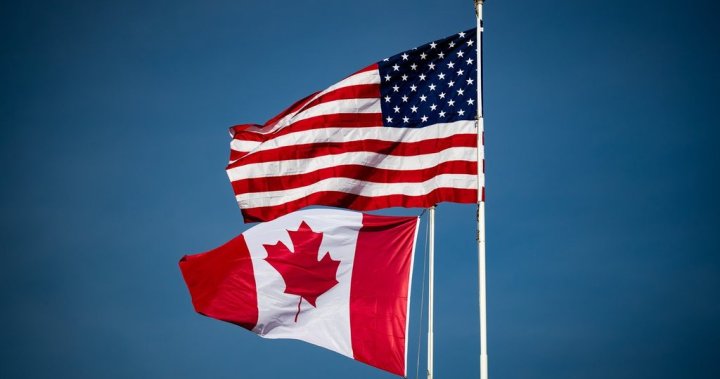The number of Canadians travelling to the United States saw a “steep” drop last month compared to a year ago, with Statistics Canada noting it’s the third consecutive month of year-over-year declines.
The data, released Thursday, showed that the number of Canadians returning home by car from the U.S. totalled 1.5 million in March of this year, which the agency says amounts to a 31.9-per cent decline from the same month in 2024.
A decline in Canadians coming back from the U.S. was also seen by those travelling by plane, with 719,500 trips made to the U.S. — a 13.5-per cent decline from last year.
In the past few months, more Canadians have chosen not to travel to the U.S. with the reasons amid the country’s threat of tariffs against Canada, the weakened Canadian dollar and President Donald Trump’s repeated comments about making its northern neighbour the “51st state.”
“There’s a lot of resentment, a lot of anger,” said Martin Firestone, president of Toronto-based insurance firm Travel Secure Inc., in a recent interview with The Canadian Press.
Last week, the federal government also issued a travel advisory for Canadians planning travel to the U.S. to “expect scrutiny,” including the possibility of more questioning by U.S. customs and border officials, and the potential of having your electronic devices examined.
It also advised Canadians planning to stay for 30 days or more to be aware of the United States’ new rule set to take effect Friday that requires foreign nationals to register with the government if they were not already registered upon entry into the country.
A lawsuit has been launched by several U.S. advocacy groups over the rule, as it impacts more than just Canadian “snowbirds” but many living in the U.S. as well.
The drop in travel has not gone unnoticed by U.S. politicians, either, with several members of Congress who represent northern border districts of the U.S. House Committee on Ways and Means saying Wednesday they’ve seen declines in Canadian tourism since Trump’s tariffs and annexation threats began.
Get daily National news
Get the day’s top news, political, economic, and current affairs headlines, delivered to your inbox once a day.
Those members encouraged U.S. Trade Representative Jamieson Greer to pursue negotiations that strengthen that cross-border relationship.
However, some U.S. officials caution the weakened Canadian loonie may explain the drop in travel.
“It’s business as usual here,” said Mike Niezgoda, a spokesman for U.S. Customs and Border Protection in New York state, in an interview with The Canadian Press. “There’s no difference … As long as you’ve got your documents, you’re fine.
“My friends in Fort Erie, they’re going, ‘I literally can’t go to the mall because our dollar is just not that valuable at this point,’” he said.
The loonie has hovered around 70 cents US for the past few months. But it was in similar territory in December — before the tariff rhetoric ratcheted up — and Canadians took seven per cent more car trips year-over-year to the U.S. that month, StatCan data suggests.
Americans may not be motivated by the greater mileage their greenbacks get them up north. The number of car trips to Canada by U.S. residents in March fell nearly 11 per cent from a year earlier, the second straight month of year-over-year declines.
Even though Canadians seem to be put off on travelling to the U.S., StatCan data shows their feelings towards other countries are not as lukewarm.
The number of Canadians who made return trips by air from countries not including the U.S. increased by nine per cent compared to last year.
— with files from The Canadian Press and Global News’ Sean Boynton
© 2025 Global News, a division of Corus Entertainment Inc.
Canadian travel to the U.S. dropped — again — in March, new data shows


